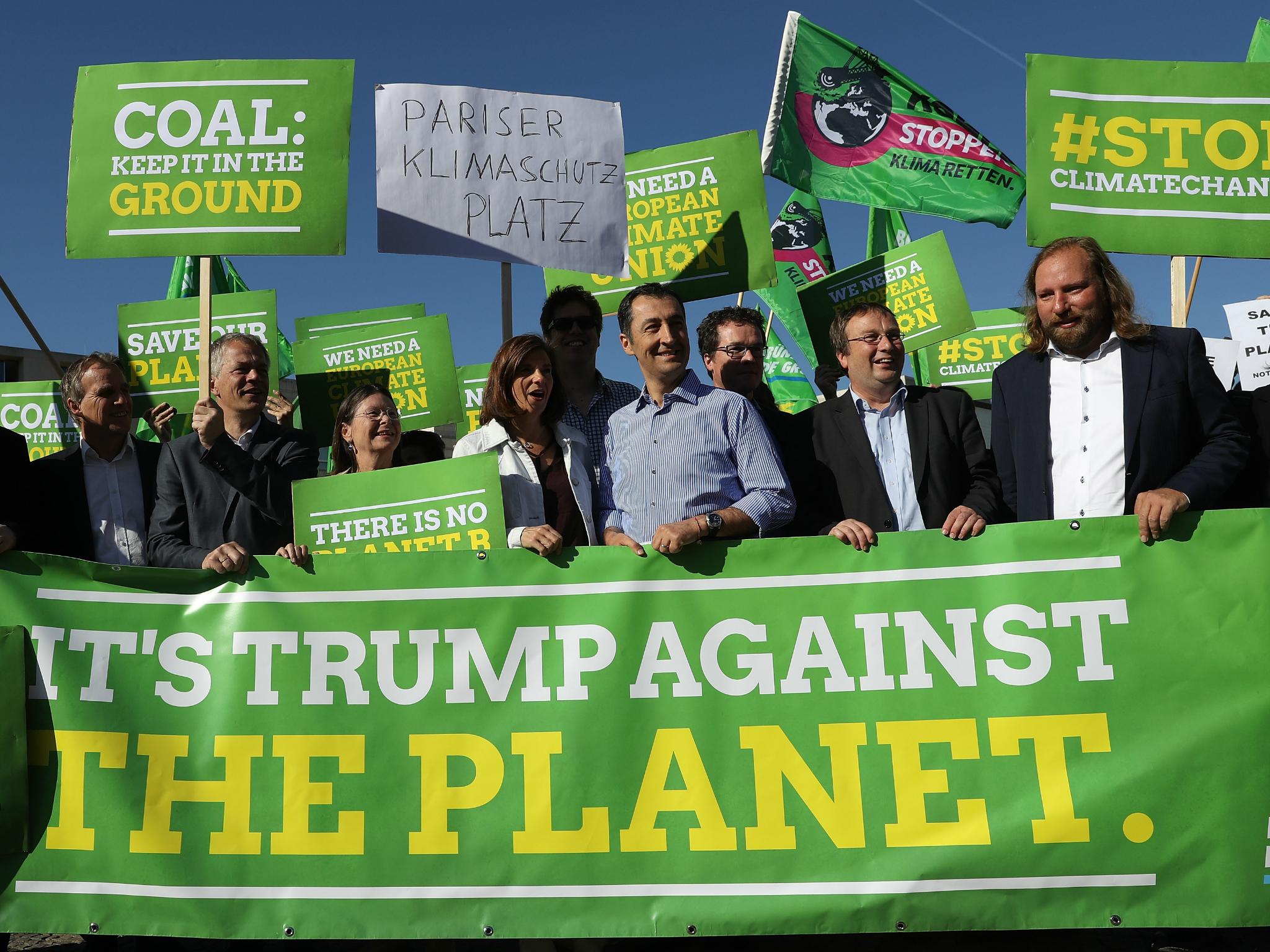US may still meet Paris accord targets, UN chief says
Despite the US withdrawal, several cities and states have stated their commitment to fighting climate change

Your support helps us to tell the story
From reproductive rights to climate change to Big Tech, The Independent is on the ground when the story is developing. Whether it's investigating the financials of Elon Musk's pro-Trump PAC or producing our latest documentary, 'The A Word', which shines a light on the American women fighting for reproductive rights, we know how important it is to parse out the facts from the messaging.
At such a critical moment in US history, we need reporters on the ground. Your donation allows us to keep sending journalists to speak to both sides of the story.
The Independent is trusted by Americans across the entire political spectrum. And unlike many other quality news outlets, we choose not to lock Americans out of our reporting and analysis with paywalls. We believe quality journalism should be available to everyone, paid for by those who can afford it.
Your support makes all the difference.The US may still meet carbon emissions reduction targets laid out in the Paris Agreement despite Donald Trump's withdrawal from the pact, United Nations Secretary-General Antonio Guterres said.
Mr Trump took the US out of the global agreement signed by nearly 200 countries in the US as an effort to control global warming and help poorer countries adapt to an already-changed planet in December 2015.
He stated repeatedly that the agreement put American workers at an "economic disadvantage," particularly in the natural gas and coal sectors.
Mr Guterres' optimism is likely due to the nearly 1000 mayors, state governors, and CEOs who have signed their own pact to keep fighting climate change.
Twenty Fortune 500 companies, including Apple, eBay, Gap Inc., Google, Intel, Microsoft, Nike, and several universities are among the signatories. A separate mayoral pledge was signed by over 200 cities to build a clean energy economy.
Michael Bloomberg, the former New York Mayor and now UN Special Envoy on Climate Change and Cities, is "convinced" that this will be enough for the US to meet the targets.
Though the Paris deal includes national plans for climate action, those countries all have authority over their own targets. The agreement is not legally binding for the US. In fact, Mr Trump did not necessarily need to formally withdraw the US in order to simply change or not meet the federal targets.
Cities and states can set their own goals, though given the Trump administration's proposed budget cuts to the Environmental Protection Agency and other climate-related programmes in the State Department, they will likely have to use state funds or private sector investment in order to meet them.
Another factor that may have prompted Mr Guterres to say the US is likely to meet its targets is the US military, which has done extensive work in protecting coastlines where military bases are located and researching the connections between conflict and climate. Defence Secretary James Mattis has said in the past that climate change is a national security threat.
Mr Guterres said in a speech in Lisbon, Portugal, that Mr Trump's decision to withdraw from the global Paris agreement last month actually strengthened the deal to fighting global warming by prompting other major countries to reaffirm their commitment to it.
China and India are now leaders in renewable energy, particularly solar power. Countries like France, Germany, and Italy banded together to say that despite Mr Trump's declaration that the Paris Agreement needed to be renegotiated - they were not interested in doing so. They and the EU will continue to work on promoting more "green" policies and economic growth around the world.
Leaders from all the countries are set to meet for the G20 meeting 7-8 July in Hamburg, Germany.
Join our commenting forum
Join thought-provoking conversations, follow other Independent readers and see their replies
0Comments